Those who look at others as simple, one dimensional caricatures fuel the rage of the dispossessed
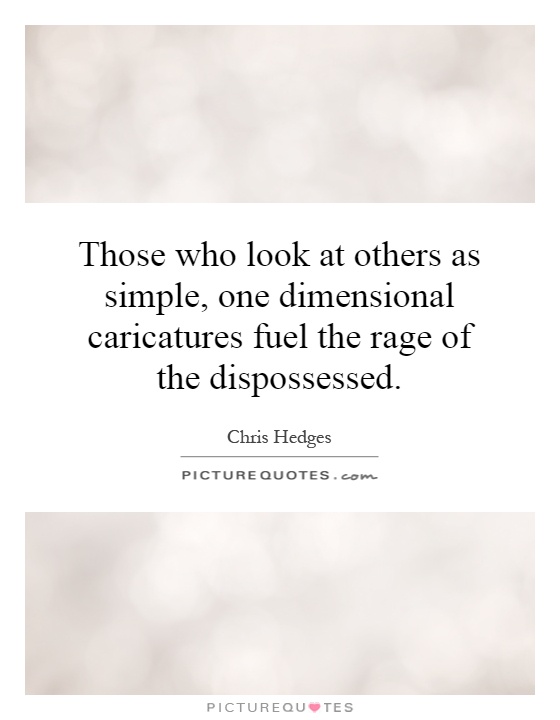
Those who look at others as simple, one dimensional caricatures fuel the rage of the dispossessed
In his work, Chris Hedges often delves into the complexities of human nature and society, shedding light on the various factors that contribute to the disenfranchisement and anger of marginalized groups. One of the key themes that Hedges explores is the dehumanization of individuals by those in positions of power, which ultimately fuels the rage of the dispossessed.When individuals are reduced to simple, one-dimensional caricatures, they are stripped of their humanity and agency. This dehumanization is often perpetuated by those in power who seek to maintain their dominance and control over others. By reducing individuals to stereotypes or caricatures, those in power are able to justify their oppressive actions and policies, further marginalizing and disenfranchising the most vulnerable members of society.
The consequences of this dehumanization are far-reaching and profound. When individuals are not seen as fully human, they are more likely to be treated with contempt, indifference, or even violence. This can lead to feelings of anger, resentment, and powerlessness among the dispossessed, fueling a sense of injustice and a desire for change.
Hedges argues that it is essential for individuals to recognize the humanity and complexity of others in order to build a more just and equitable society. By acknowledging the full humanity of others, we can begin to challenge the systems of power and oppression that perpetuate inequality and injustice. This requires empathy, compassion, and a willingness to listen to the voices of those who have been marginalized and silenced.


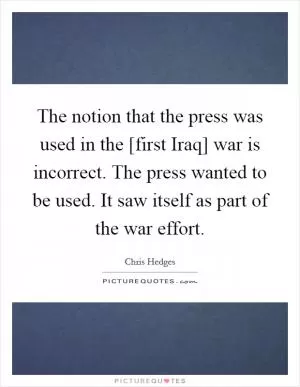
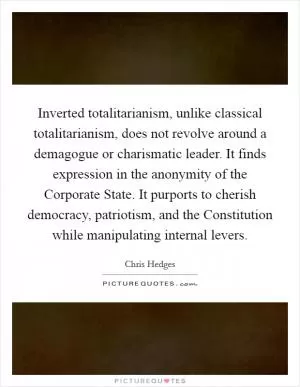

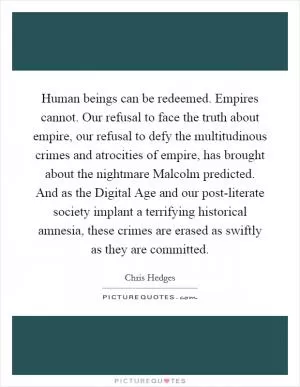
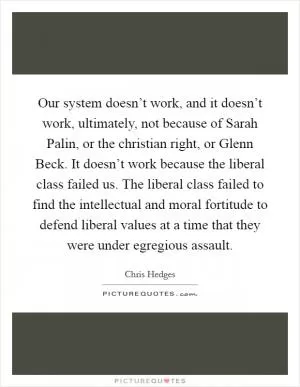
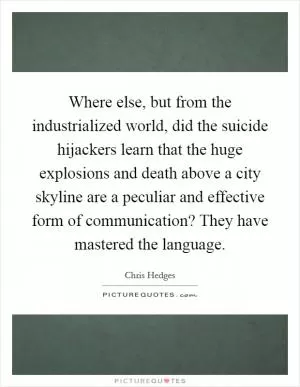

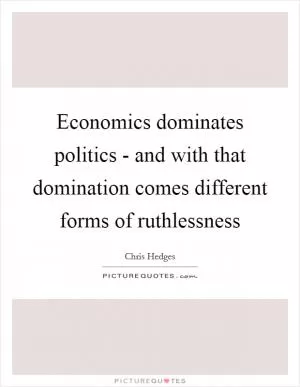
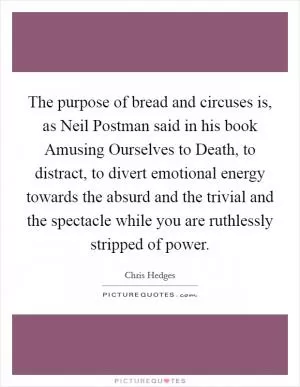
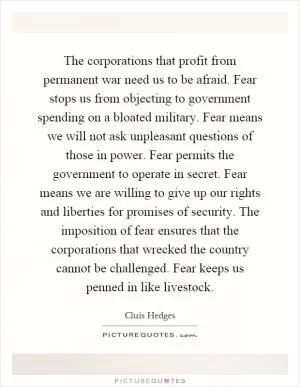
 Friendship Quotes
Friendship Quotes Love Quotes
Love Quotes Life Quotes
Life Quotes Funny Quotes
Funny Quotes Motivational Quotes
Motivational Quotes Inspirational Quotes
Inspirational Quotes